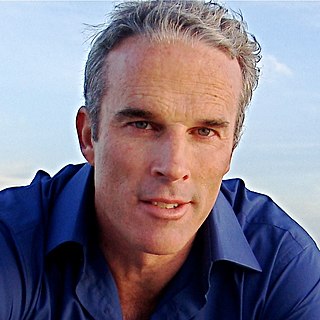A Quote by Tony Blair
When my parents were growing up the world's population was under three billion. During my children's lifetime, it is likely to exceed nine billion. You don't need to be an expert to realise that sustainable development is going to become the greatest challenge we face this century
Related Quotes
I always give the analogy of the Earth at Night picture, of 7.3 billion of us, right? And everyone says, "Well, that's population." Well, if you took the entire world's population and you lived at the density of Manhattan proper - not a bad place to live - how much space do 7.3 billion people take up? The state of Colorado. At which point I end my lectures, because I want you to be thinking ... is this really a question of population, or is this a question of land use and resource consumption? And let's face it, the top 1.3 billion of us are doing all the damage. Sorry.
At the beginning of the 20th century, there were less than 3 billion people on the earth, closer to 2 billion. By all measures that we can come up with right now,. with the lifestyle and consumption pattern of the Western industrial civilization, we can probably sustain about 2 billion people on this earth. We already have over 6 billion. China and India are aspiring to come on as industrial nations, aspiring to the lifestyle of the Western world, and it simply can't happen.
If we could magically transport ourselves back to the young Earth, when it was only a billion years old or two billion years old or three billion years old or four billion years old, we wouldn't be able to survive. We would have a hard time surviving if we were transported to the time when dinosaurs were around.
The wealthiest 300 people have greater riches than the three billion poorest. The three wealthiest people have greater riches than the 48 poorest countries put together. With only limited environmental space to accommodate the expected 9 billion human inhabitants of the world by 2050, such disparities in consumption are clearly not sustainable











































